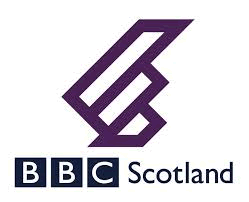
A previous blogpost reported on the Scottish government’s plans for independence, set out in its White Paper, Scotland’s Future. The fate of the BBC, noted briefly in the previous post, is worth discussing in a bit more detail. It shows the peculiarities of the current governance system in the UK, to which the demand for Scottish independence is one possible answer. It is outside the scope of this website to say whether it is a good answer, but it is an answer certainly worth discussing.
At present, the BBC is funded by a licence fee levied on people who watch live television in the UK. The White Paper proposes that Scotland should retain the licence fee, but that it should be paid not to the BBC but to a Scottish public service broadcaster instead. This new service, the Scottish Broadcasting Service, would aim to maintain the current relationship with the BBC, broadcasting its channels but opting out where it preferred specific Scottish content, and also providing the BBC with programmes for broadcast in the rest of the UK.
Scottish people like the BBC and don’t want to be cut off from it, so here is a solution. It sounds fine, until you follow the money.
Scottish licence fee revenue is worth, according to the White Paper, £320 million. Of this, £175 million is spent in Scotland and the rest, £145 million, paid to the BBC. In future, the whole amount will be spent in Scotland, giving a future Scottish broadcaster revenue 20 per cent more than that of RTE, its Irish equivalent.
But what does the BBC get from this? Revenue reduced by £145 million, which will in future stay in Scotland, but the same broadcasting and programming obligations as before. Something doesn’t add up.
Here is an example of how the pro-independence case is currently playing the standard political game of having it both ways. What if the BBC doesn’t agree to this? Why should it give away its output for free?
This is an outcome not contemplated by the White Paper. It does graciously concede that there might need to be a plan B in the event that Westminster discontinues the idea of the BBC as a public service broadcaster altogether, in which case a commercial deal is proposed.
BBC channels are currently broadcast in Ireland, the Netherlands and Switzerland by virtue not of a political deal but of a commercial contract. Scotland could have one of those if it preferred. And the cost? We are not told, but surely it will be at least £145 million. Why should English licence fee payers accept anything less?
